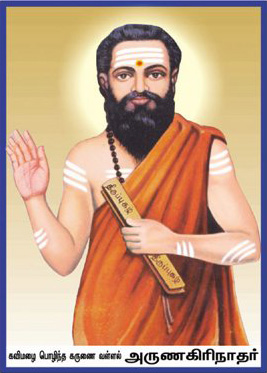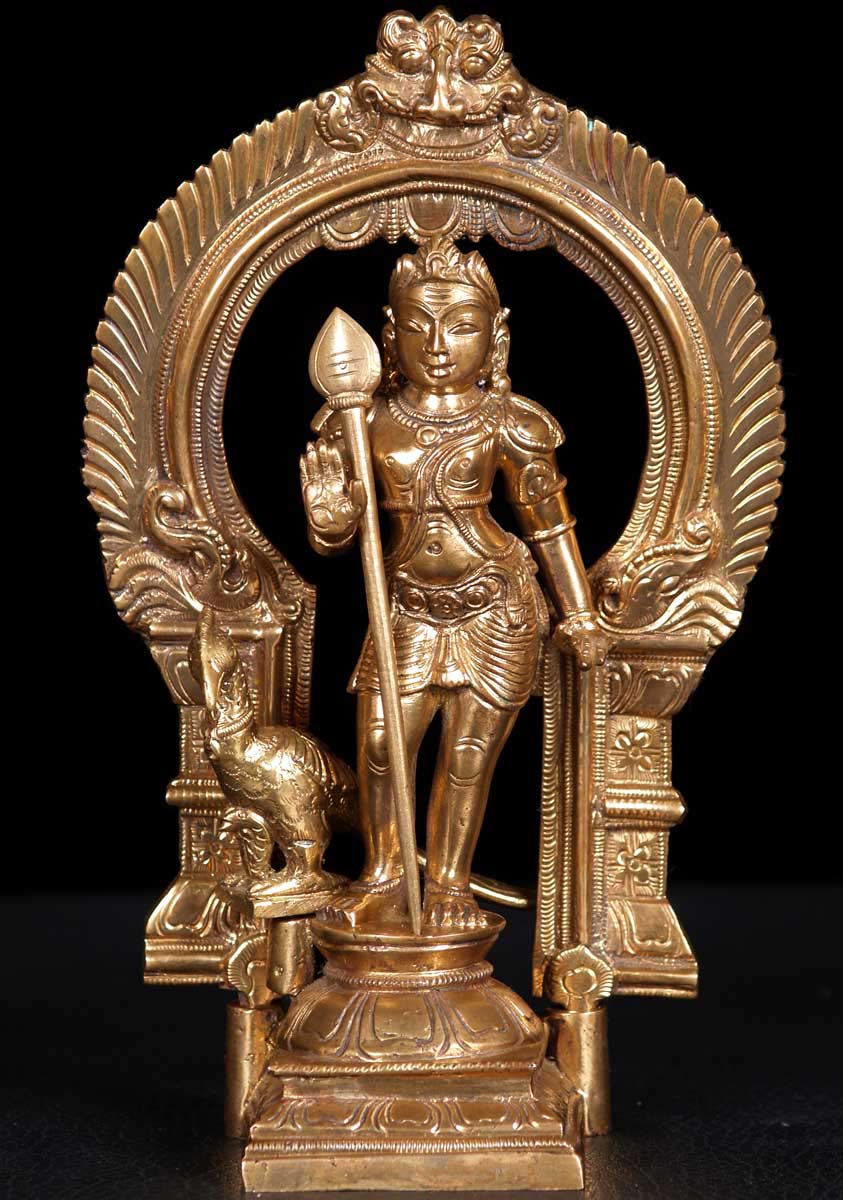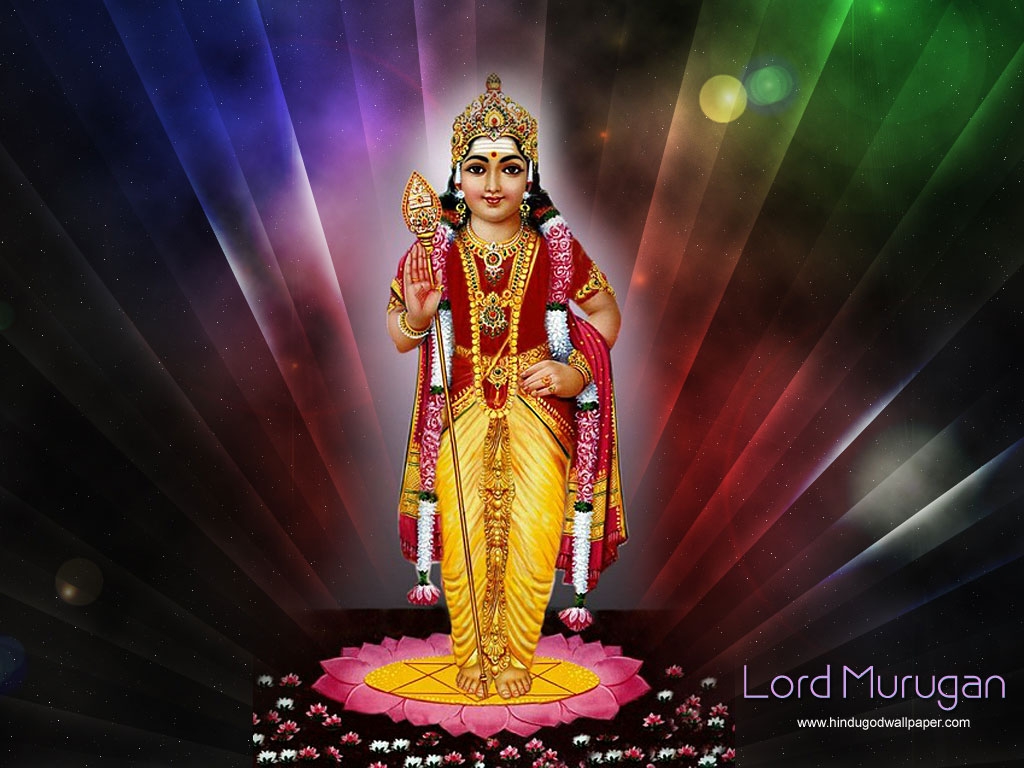
|
|||||
|
| |||||
Kandar Anubhuti: Arunagirinathar's experience of Lord Murugan
by V.S. Krishnan
|
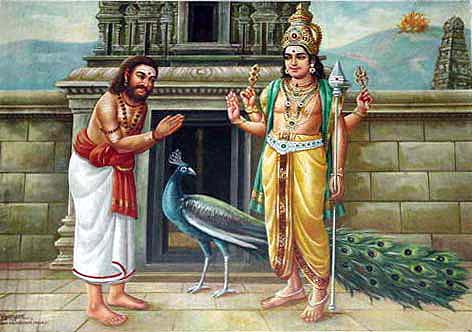 |
| Arunagiri worships Lord Murugan who had just rescued him from certain death by suicide. Painting from Tiru Avinankudi Tirukkovil, Palani. |
Aana Amudhe Ayil Vel Arase,
Jnanakarane Navila Thakumo,
Yaan Aakiye Ennai Vizhungi Verum
Thanai Nilai Ninrathu Tharparame Song No. 28
“Who are You"? If such a question is posed to one, he would say “I am Krishna" or I am the musician, the singer, the father and so on. These identifications refer to his name, his interest or his profession or his relation but not to the ‘real “I". The Self which gives him the consciousness of his existence is the real ‘I' (Thaan). But generally, the individual remains under the mistaken notion that his body, mind and intellect constitute his “I" (Yaan). Once this false notion is removed, he becomes the realized self. Arunagirinathar says: “Oh Muruga, the source of all knowledge, what a grace that I received from you! The ego that characterised my individuality has been thoroughly overpowered. You have swallowed the false “I" in me (Yaan) and as a result, what remained in me is the true “I", ever consciousness of my Self (Than). The ego-self having subsided, I am elevated to a supreme state of awareness where my real Self alone remained." In another song Thenundu Mukkanigal, Arunagiri Swamigal expresses similar concept: “Having transcended from the false notion of “I" and the world of Maya, I became enlightened and conscious of my Self. “
“Uru Anru, Aru Anru, Ulathu Anru, Ilathu Anru
Irul Anru, Oli Anru Ena Ninrathuve" (Song 13)
What is the Eternal Truth? Arunagirinathar asks in Kandar Anubhuti. (Vano Punal Paar Kanal Madudamo?) There are many images appearing before us, all appearing real and disappearing later. That which appears now and disappears later is not real. That alone is real which exists for ever. How to know the Reality with our limited power of perception? The Vedas speak eloquently about various aspects but when it comes to the question of reality, they become silent. They tell us what is not but not what is. (This is known as “Neti" “Neti", derived from the word ‘Na Ithi' which means ‘not this' ‘not this' )
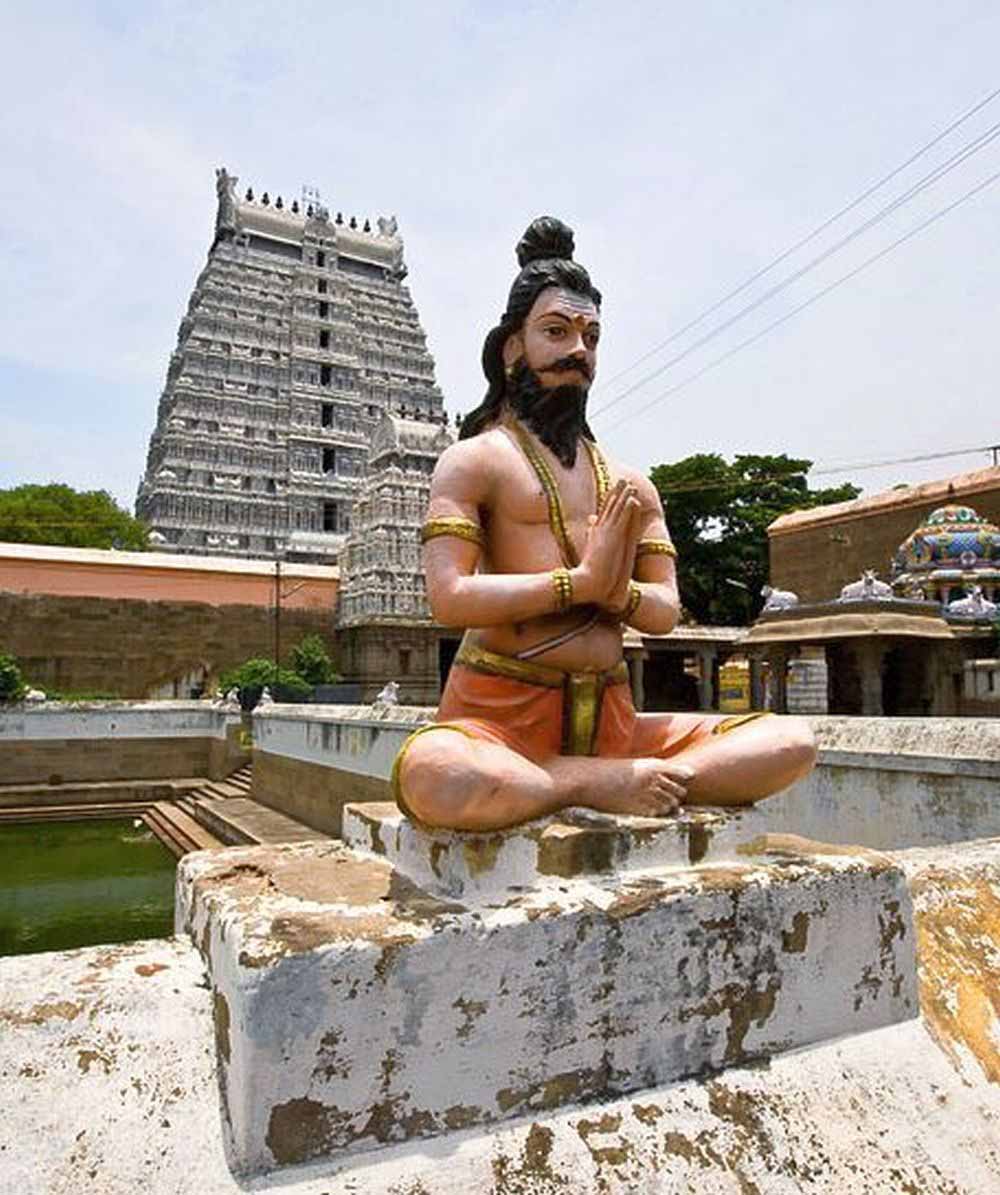
The sculpture of Sri Arunagirinathar at the temple of Arunachala, Tiruvannamalai
Bhagavan Ramana Maharshi quoted an instance. Many saints, appearing like Rama, were paraded before Sita and she was asked to identify her husband. She just shook her head before everyone, indicating ‘not this' ‘not this' till at-last, when she stood before Rama, she fell silent. Similarly, the Vedas also say ‘not this', ‘not this' and become silent when it comes to the question of eternal truth. “When all false identities are removed one by one and what alone survives, is the truth.
A spiritual aspirant starts his spiritual pursuit with an enquiry “what is" and “what is not". He pursues his mission by studying all phenomenon, subjecting every aspect to his intellectual scrutiny and removing that which his reasoning faculty does not approve. This is the process of elimination by which all that is unreal is rejected and what remains for ever is accepted as real. In his effort to find the underlying reality in Muruga, Arunagirinathar first eliminates what does not constitute Muruga. Here, Arunagirinathar describes what is not Muruga or what he is not. He has no form but He is not formless either. He is not visible to the eyes but he is not without physical features either. He is not present but he is also not absent. As he radiates light, He is not darkness but he is not Light either.
According to Sri Pamban Swamigal, one who chants Anubhuti would find himself liberated from all worldly attachments. While reciting Anubhuti, the vagaries and vicissitudes of life, the fears and anxieties of mind would disappear and the devotee would enter into the Kingdom of God where peace and tranquility prevails. Tayumanava Swamigal said: “When that day would dawn when I would experience the presence of Kandha, render the songs of Kandar Anubhuti and ever remain at his grace?" (Kandar Anubhuti Petru, Kandar Anubhuti Sonna, Enthai Arul Nadi Irukkum Nal Ennalo?).
In another song, Thayumanavar says: “Oh Muruga! Who else has rendered a verse of truth as eloquently and beautifully as you?" (Ayya Arunagiri, Unnai Pol Meyyana Or sol Vilambiyavar Yaar?"). Just as the Tenth Thirumurai, ‘Thirumantiram" composed by Thirumular is considered as the foremost epic on Siva, Kandar Anubhuti composed by Aruynagirinathar is considered as the foremost significant work on Muruga. Thanigai Ula says: “All the fifty verses of Anubhuti would transcend one to a state of infinite bliss.
As the sun dawns, let us begin the day by reciting few lines from Kandar Anubhuti and derive strength and inspiration to face the challenges of life.
Source: www.thiruppugazh.org
The Tiruppugazh Way: The Story of Guruji A.S. Raghavan
Guruji's new book: 'thalam thoRum tamizhk kadavuL'
"Saint Arunagirinathar" by A.S. Raghavan
Thiruppugazh — Musical Way of Worship
Articles about other Muruga bhaktars
|
|
